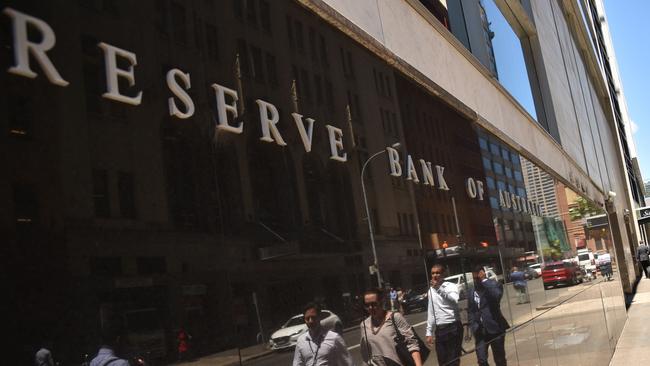Terry McCrann: First the recession, now falling prices
Most economists in their mindlessness see negative inflation – falling prices – as a bad thing. But the last thing jobless workers and battered businesses need right now are price rises, writes Terry McCrann.

Terry McCrann
Don't miss out on the headlines from Terry McCrann. Followed categories will be added to My News.
There are two big points to be made about the 1.9 per cent fall in overall consumer prices in the June quarter. Thank goodness – or the prime minister – it happened and it happened entirely because of exactly that: decisions of and orders by his government.
Most economists in their mindlessness see negative inflation – falling prices – as a bad thing. Indeed, the Fin Review had a story last week which kicked off with: “Economists are bracing for the worst quarter of inflation on record”.
Bracing, bracing? Worst quarter? Worst quarter?
Earth to the Fin and those ‘most economists’: people who actually live in the real world, on this planet, in this universe, would know that the ‘worst quarter’ for inflation is more like (indeed, was) December 1951 when prices leapt by 7.5 per cent.

This meant that what you could buy with your wage or your accumulated savings was slashed by that much in a single period of three months. Whoopee, give me more of that so I can end up affording nothing, Zimbabwe-style!
Or in more recent living memory, the September quarter 2000 when the CPI leapt by 3.8 per cent with the arrival of the GST adding 10 per cent gross (less in reality after offsetting the abolition of wholesale sales tax) to the prices of nearly everything.
I don’t remember that being celebrated as the “best quarter for inflation” in decades; and so demands for more quarters like it? What we saw back then were closer to riots in the street – or as they are now called in the media, ‘intensified peaceful protests’.
Now yes, ‘economists’ think they are making a distinction between the bad ‘deflation’ that comes with an economy in recession or depression and the falling prices that come with productivity or tech changes within ‘good’ modest overall inflation.
But they are not. The idea that we have to have ‘some inflation’ to grease the wheels of the economy is a nonsense, peculiar to the second half of the 20th century and the opening decades of the 21st.
There is no ‘good inflation’, even 2 per cent. It always erodes your spending power and facilitates government stealing money from you via bracket creep.
Further, very specifically, the falling overall prices – such as they modestly were – in the June quarter were actively desirable.

If you lost your job or had your business destroyed or even ‘just’ had your income slashed, would you have really cheered if the cost of everything had gone up instead as well?
Somewhat more subtly, it would have been extremely disturbing if the overall price level – remember, that’s a mix of some things going up in price and others going down – had not gone down in the latest quarter.
The government ordered the economy into recession; it ordered the destruction of businesses and jobs – that’s not said pejoratively, just as a statement of fact and of consequence.
In recessions – and the one we’ve just been through (hopefully, past tense) was the worst in nearly 100 years – businesses have to generally cut prices to sell stuff.
Something would have been badly awry if they were generally still getting away with price rises.
Now, yes, there were some price rises – in food, thanks to high demand like take-away; and tobacco, thanks to tax hikes; and home office furniture and fridges and freezers, for obvious demand reasons.
Oh yes, and for toilet paper. Thank you ABS for that detail.

But mostly it was pretty much across the board price falls everywhere else – also, by percentages pretty much across the board from near zero to nearly 100 per cent.
They were all due either directly or indirectly to specific government action and order; or because of the general slump in demand thanks to the mandated recession/falling demand, either here, globally or both (like petrol prices).
The stand-out was of course the 95 per cent plunge in the ‘price’ of child care – thanks to the government ordering it to be free.
Obviously, at some point the government will order it ‘not to be free’ and the reversal will thus boost inflation.
Although we are unlikely to see more negative inflation – you only get government–ordered 95 per cent price cuts, well, occasionally – I’d be more than happy to see very low inflation continue into 2021.
The last thing jobless workers and battered businesses need are price rises.
Again a simple question: hands up those who demand and I mean demand petrol prices go back to $1.50 and points higher?
To say nothing of gas and power prices?
RATE REACTION WILL BE ZERO
The inflation numbers have zero implications for policy – either from the government which effectively ordered it, or for the Reserve Bank which frets over it not being in the 2-3 per cent plus range.
As it does after every inflation number, the RBA moves straight to an internal meeting to prepare policy recommendations for the board meeting the following week. They would have obviously looked though this as a weird one-off.
In a more fundamental sense, the RBA has put in place its comprehensive plan for underpinning the economy and the financial system, fully anticipating this sort of number.
There’d be no point in cutting its already near zero 0.25 per cent policy rate (or doing anything else) and it won’t.
Much the same goes for the government. Its focus is on off-setting the recession it ordered – JobKeeper And JobSeeker – and it’s already announced the next stage for those.
Originally published as Terry McCrann: First the recession, now falling prices
